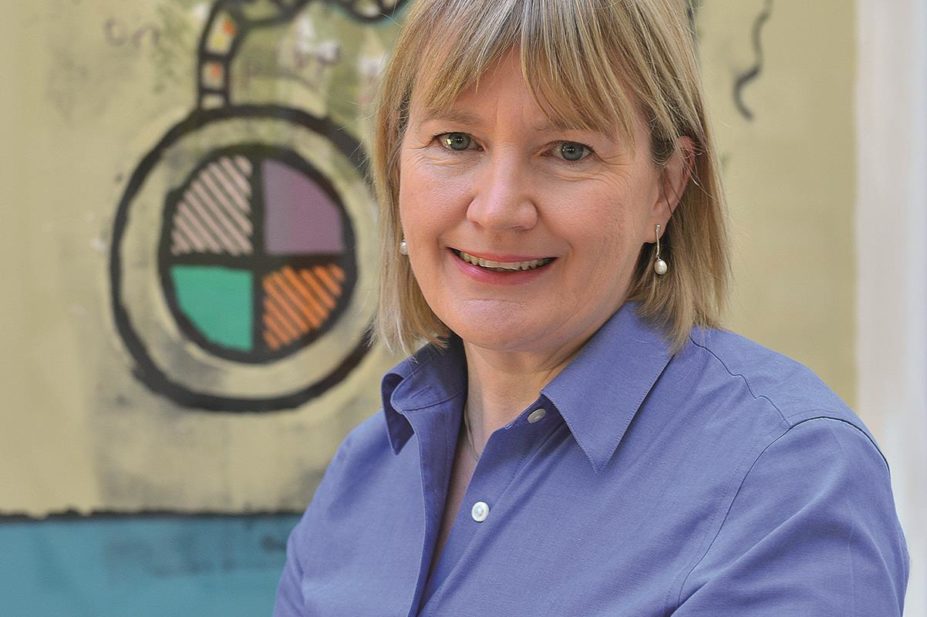
In her 21-year career as a health services researcher, Margaret Watson has focused on gathering evidence to inform community pharmacy practice. And she thinks more pharmacists should try to get involved in research. “Most of the research I do is dependent on pharmacists and their staff engaging with me and my research team and participating in research,” she explains. “I think there is potentially a lack of awareness or acknowledgement among the pharmacy profession of the need for research to inform our practice and patient care.” Without data, she adds, there is no evidence that particular services or approaches benefit patients, which makes it challenging to have services commissioned.
Watson recently received a Health Foundation Improvement Science Fellowship, which she intends to use to work with patients, the public and pharmacy teams to develop quality indicators for managing minor-ailment consultations in community pharmacies. She is the first pharmacist, and the first researcher based in Scotland, to receive the fellowship, which offers three years’ funding to lead original, applied research.
“There’s very little information regarding what patients and the public would regard as a quality consultation, so it will be interesting to find out their perspectives,” she says of her research proposal.
After eight years as a clinical pharmacist in secondary care, Watson became involved in research in 1994 and has worked at the University of Aberdeen for the past 15 years. “I like being able to act proactively and to change future behaviour and practice, rather than to act retrospectively — which is so often the case with pharmacist interventions,” she says. Her days consist of preparing manuscripts for publication, writing research proposals, teaching postgraduate students and supervising PhD students, who are based as far afield as Aberdeen, Saudi Arabia and Australia.
The MINA study
Watson says that her most important achievement to date was leading the minor ailment (MINA) study[1]
, a report [PDF] of which was published in January 2014. The study, funded by the charity Pharmacy Research UK, demonstrated that patients with minor ailments continue to present in high-cost settings, such as accident and emergency departments (A&E) and general practices, when they could be treated in community pharmacies.
The study also demonstrated that patients with similar symptoms suggestive of minor ailments achieve similar outcomes if they are treated in community pharmacies instead of A&E and general practices, and that the associated costs are several orders of magnitude less in pharmacies than in the other settings. Watson says: “We estimated, based on the MINA study results and national statistics, that consultations for minor ailments in general practices and A&E equate to around £1bn annually.”
She adds that whether or not a consultation was classified as suitable for a community pharmacy was decided by a panel of doctors — and there was a 10-fold variation across the doctors. “It might be that the doctors themselves are not aware of all the potential treatment options that are available in a community pharmacy, suggesting that there is also a need to raise awareness among other health professionals regarding the types of condition that can be managed effectively in community pharmacies,” Watson says.
The MINA study has helped to raise public and professional awareness of the contribution that pharmacists can make, according to Watson. “It would be great if it reduced the number of minor-ailment consultations that present in emergency departments and general practices, although this would be difficult to measure and to link back solely to the MINA study,” she notes. “However, if we’re contributing to enhancing capacity within the NHS by reducing the burden of consultations in high-cost settings, by providing management for these consultations in community pharmacy, then that would be a terrific impact of the MINA study.”
Advice for aspiring researchers
Budding pharmacy researchers must be motivated and tenacious, says Watson. “Think about what you really want to achieve with your research — what really drives and interests you, and how this fits with the overall healthcare agenda,” she says. “Being involved in research is challenging. You have to compete for funding as well as to get your research results published in high-quality journals. If you can’t cope with rejection or critique, then research isn’t for you.”
For those starting out in research, Watson emphasises the importance of ensuring that their research interests align with the individuals with whom they wish to collaborate. She says: “Novice researchers should tailor their research proposals to reflect the strengths of their supervisors. In so doing, they will not only benefit from their supervisor’s experience, but will also contribute to ongoing research programmes.”
References
[1] Community Pharmacy Management of Minor Ailments. Pharmacy Research UK, 2015.


